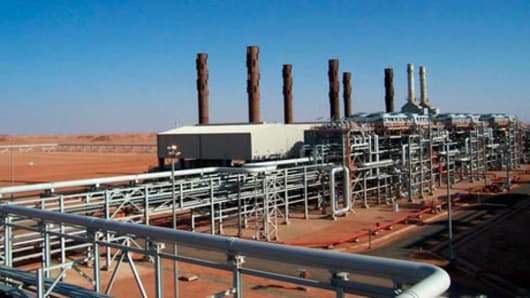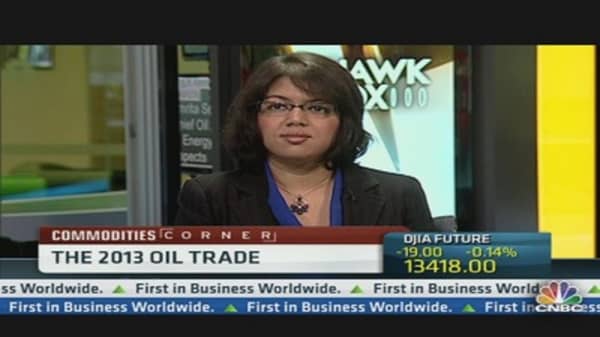Global oil markets, under pressure from increased North American production, are facing the return of a familiar upside risk - the threat of supply disruption from North Africa after an attack on an Algerian gas field swiftly escalated into an international hostage crisis.
An al Qaeda affiliated group attacked the In Amenas gas facility in eastern Algeria on Wednesday morning, claiming to have kidnapped up to 41 foreigners including seven Americans reportedly in retaliation for France's intervention in Mali.
Three people, including a Briton and a French national, are believed to have been killed. The gas field is operated by a joint venture including BP, Norwegian oil firm Statoil and Algerian state company Sonatrach, Reuters reported.
"This is a wake-up call for oil markets which had become complacent over recent times," said Gavin Wendt, senior resource analyst at MineLife in Sydney.
(Watch Now: Panetta:'Terrorist Attack' In Algeria)
"We are only ever a heartbeat away from a major geopolitical issue somewhere in the world. The Arab Spring is far from over and Algeria is one country that hasn't been discussed - but where tensions are high. Markets had grown complacent on the back of higher U.S. production, but the reality is that a higher risk premium should - and will - be factored into crude prices."
Benchmark oil markets did push higher, with U.S. crude futures climbing almost a $1 a barrel to $94.24 on Wednesday, having traded in the range of $93.10 to $94.36. Brent's reaction was a little more muted with the expiring February crude contract rising 31 cents to settle at $110.61 a barrel.
"The Algerian events remind us that the world is a dangerous place and geo-political risk premiums are appropriate for energy sectors," said David Kotok, chief investment officer at Cumberland Advisors, which has $1.9 billion in assets under management.
Tom Weber, senior commodity advisor at Portfolio Managers added: "The question is: Is this a one-off or a new AQIM (Al Qaeda in the Islamic Maghreb) tactic? We'll need to see what the demands for release are. You can bet that drones are circling the area. If WTI can't break $95 decisively, look to move back down towards $90.50."
This scale of the incident appeared to have caught many off guard.
"The ability of these militants to penetrate Algeria's gas-rich region is a worrying development and somewhat unprecedented," said Philippe de Pontet, Africa director at global political risk consultancy Eurasia Group. "Algeria's borders are some of the most formidable in the region and yet we saw that they can be vulnerable."
(Read More: How the US Could be the World's Next Major Producer of Oil)
Lars Christian Bacher, executive vice president for Development and Production International at Statoil - one of the three joint-venture operators of the In Amenas facility - described the ongoing hostage situation as "one of the most serious incidents" the company has experienced.
Monitoring the Situation





